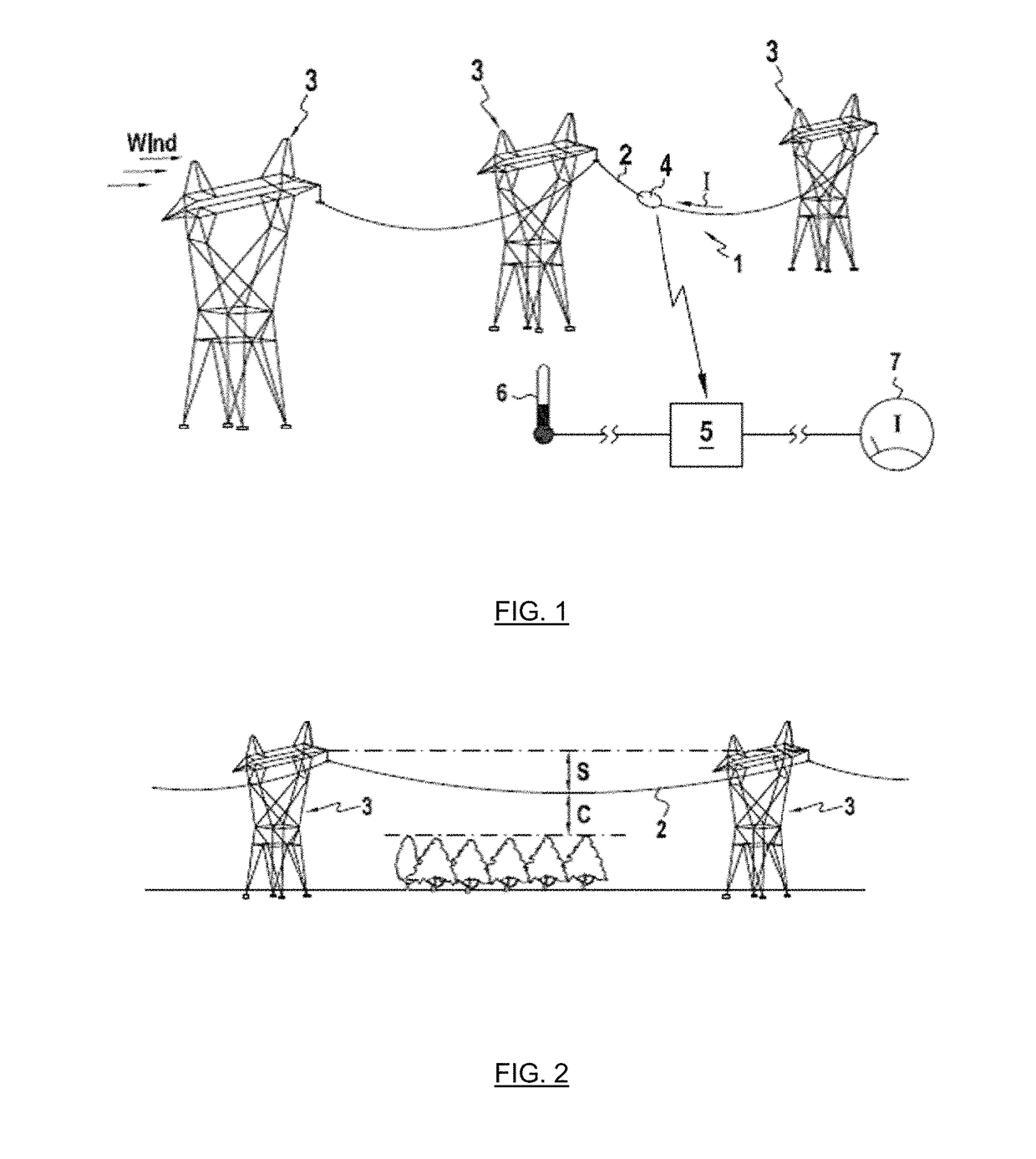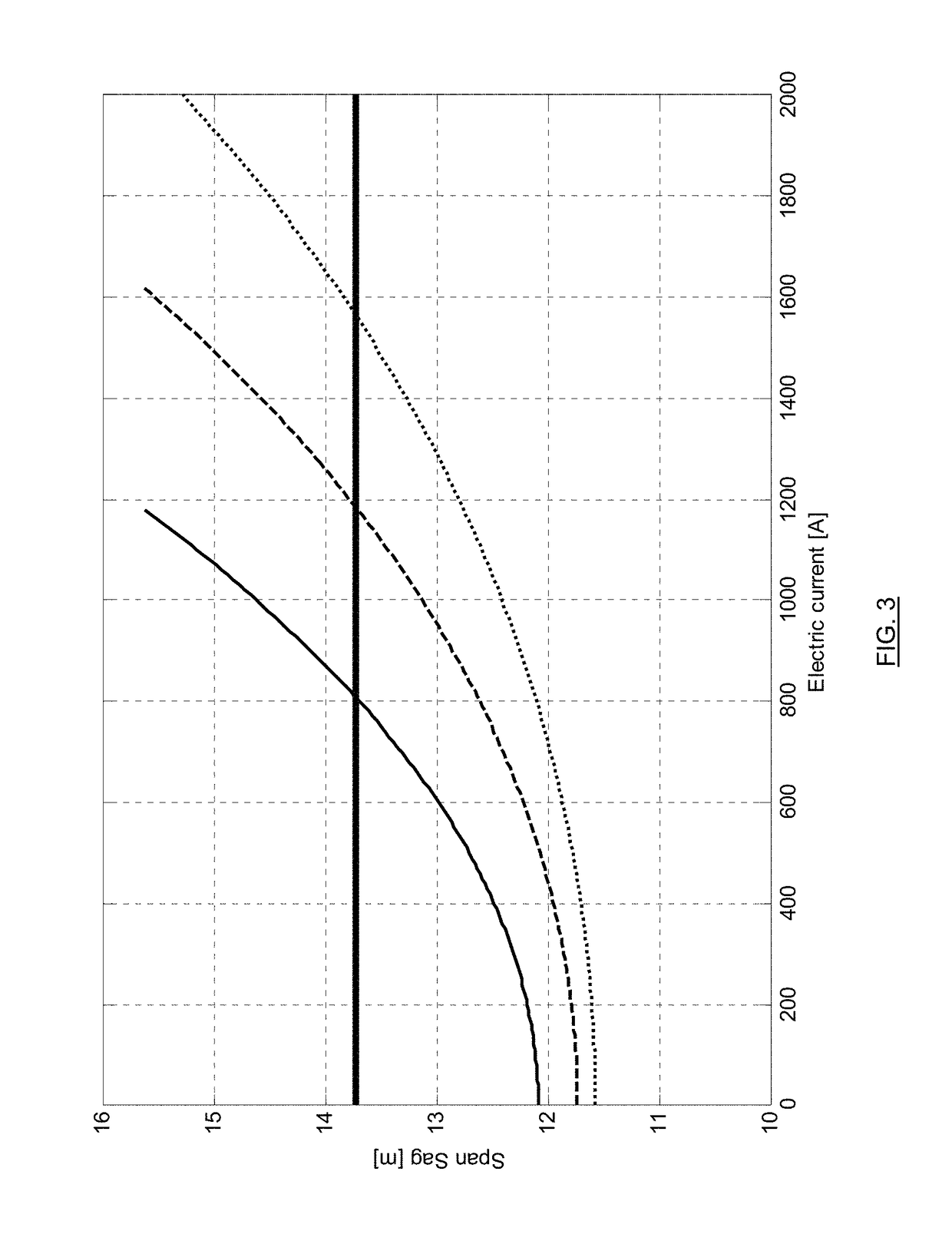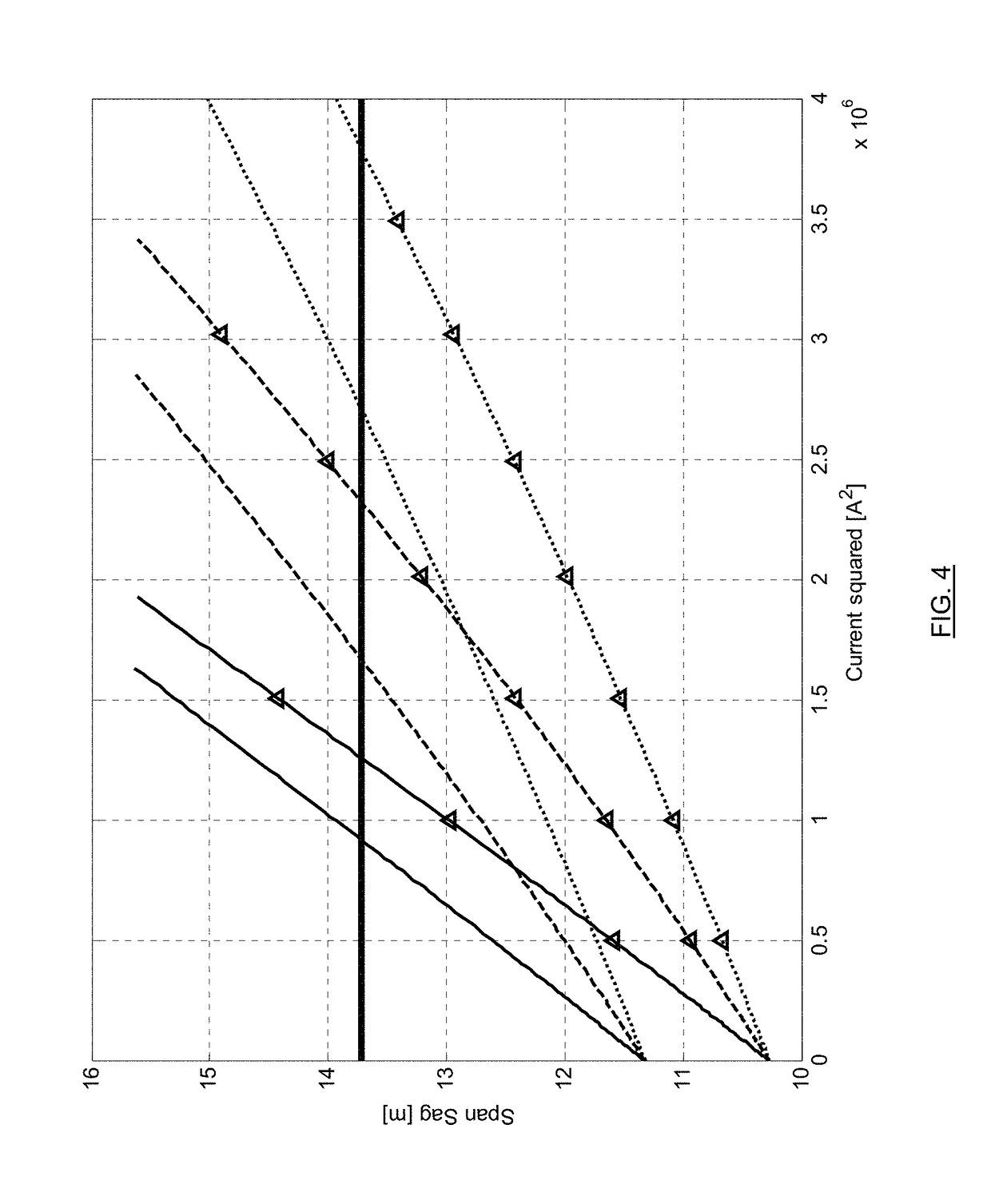Method and system for determining the thermal power line rating
a technology of thermal power lines and ratings, applied in the field of methods, can solve the problems of power line ratings being limited by the maximum conductor temperature, power lines in the field are always subject to movement and vibration, and the maximum allowable current rating or ampacity is primarily limited
- Summary
- Abstract
- Description
- Claims
- Application Information
AI Technical Summary
Benefits of technology
Problems solved by technology
Method used
Image
Examples
Embodiment Construction
[0051]As to the following defined terms, these definitions shall be applied, unless a different definition is given in the claims or elsewhere in this specification.
[0052]All numeric values are herein assumed to be preceded by the term “about”, whether or not explicitly indicated. The term “about” generally refers to a range of numbers that one of skill in the art would consider equivalent to the recited value (i.e. having the same function or result). In many instances, the term “about” may be indicative as including numbers that are rounded to the nearest significant number.
[0053]Although some suitable dimension ranges and / or values pertaining to various components, features and / or specifications are disclosed, one of skill in the art, incited by the present disclosure, would understand that desired dimensions, ranges and / or values may deviate from those expressly disclosed.
[0054]As used in this specification and in the appended claims, the singular forms “a”, “an”, and “the” incl...
PUM
| Property | Measurement | Unit |
|---|---|---|
| temperature | aaaaa | aaaaa |
| temperature | aaaaa | aaaaa |
| width | aaaaa | aaaaa |
Abstract
Description
Claims
Application Information
 Login to View More
Login to View More - R&D
- Intellectual Property
- Life Sciences
- Materials
- Tech Scout
- Unparalleled Data Quality
- Higher Quality Content
- 60% Fewer Hallucinations
Browse by: Latest US Patents, China's latest patents, Technical Efficacy Thesaurus, Application Domain, Technology Topic, Popular Technical Reports.
© 2025 PatSnap. All rights reserved.Legal|Privacy policy|Modern Slavery Act Transparency Statement|Sitemap|About US| Contact US: help@patsnap.com



